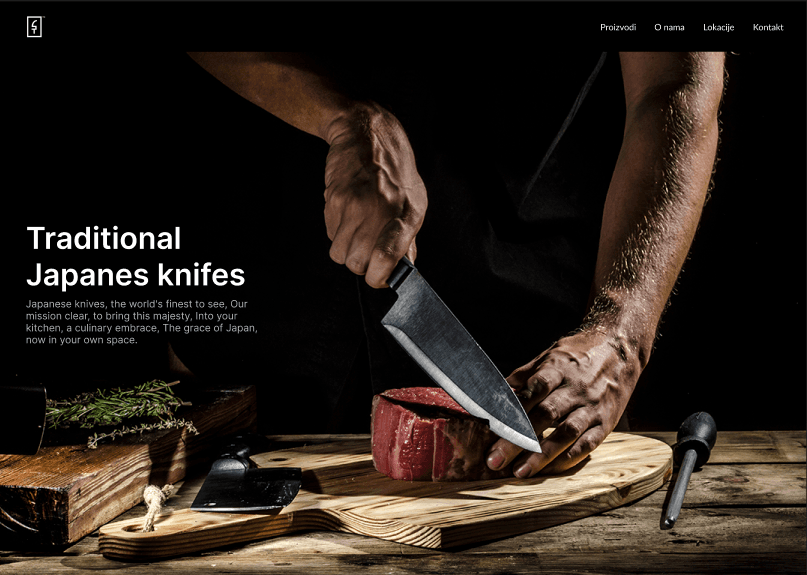Santoku's Website: A Masterclass in Niche Market Web Design by a Software Agency
Introduction
Welcome to the world of Santoku, where the art of Japanese knife-making meets modern web design. Here, we explore how a software agency's expertise can transform a niche market website into an online haven for culinary enthusiasts and professionals. Santoku's website isn't just a portal; it’s a journey into the heart of culinary artistry, thanks to the thoughtful design and functionality that speaks directly to its target audience.
Key Takeaways
- Leveraging web design to cater to niche markets.
- The transformative impact of a tailored digital strategy.
Understanding Your Niche: The Santoku Case Study
Santoku’s website is a prime example of how understanding your audience leads to effective web design. For a niche like high-quality Japanese knives, the design must resonate with both the aesthetic and functional needs of chefs and culinary experts. Here, the software agency's role was crucial in identifying these unique needs and creating a digital environment that is both informative and inviting.
Design and Functionality: Crafting the User Experience
At the heart of Santoku’s website is a user experience designed to engage and inform. From intuitive navigation to visually appealing layouts, every element is crafted to enhance the user's journey. The website's design not only showcases the products but also tells a story - the story of quality, tradition, and precision, much like the knives it sells.
The Role of Content: Educating and Engaging Users
Santoku’s website goes beyond mere aesthetics; it educates its visitors. The content is carefully curated to provide valuable insights about the art of Japanese knife-making, usage tips, and maintenance advice. This strategic use of content not only positions the brand as an authority but also significantly enhances user engagement and time spent on the site.
Integrating E-Commerce Seamlessly
A crucial aspect of Santoku’s website is its seamless integration of e-commerce functionality. The site is not just a catalog of exquisite Japanese knives; it’s an interactive platform where visitors can easily browse, learn about, and purchase these culinary tools. The e-commerce element is smoothly integrated, offering a hassle-free shopping experience that aligns with user expectations and needs. This integration demonstrates the software agency’s understanding of the importance of a streamlined online shopping experience in today's digital era. Explore Santoku’s range of products here.
Website as a Brand Ambassador
Santoku's website does more than sell products; it embodies the brand's ethos of quality and craftsmanship. Every aspect of the website, from its design to its content, reflects the brand's commitment to excellence and authenticity. This digital presence not only serves as an information hub but also as an ambassador for the brand, building trust and credibility with its audience. The software agency’s role in translating Santoku’s brand values into a digital format is a testament to the power of effective web design in brand building.
Building a Niche Market Website: Key Takeaways for Businesses
For businesses looking to develop or enhance their web presence, Santoku’s website serves as an inspiring example. Key takeaways include:
- Understanding and catering to your niche audience is crucial.
- Integrating e-commerce should be seamless and user-friendly.
- Your website is an extension of your brand and should represent your core values.
- Investing in professional web development can significantly elevate your brand in a competitive market.
Conclusion
Santoku’s website, crafted by a skilled software agency, exemplifies how targeted web design can profoundly impact a niche market. It goes beyond being just a website; it’s a digital experience that connects the brand with its audience on a deeper level. For businesses venturing into niche markets, this case study underscores the importance of a well-crafted website in capturing and engaging your target audience.

